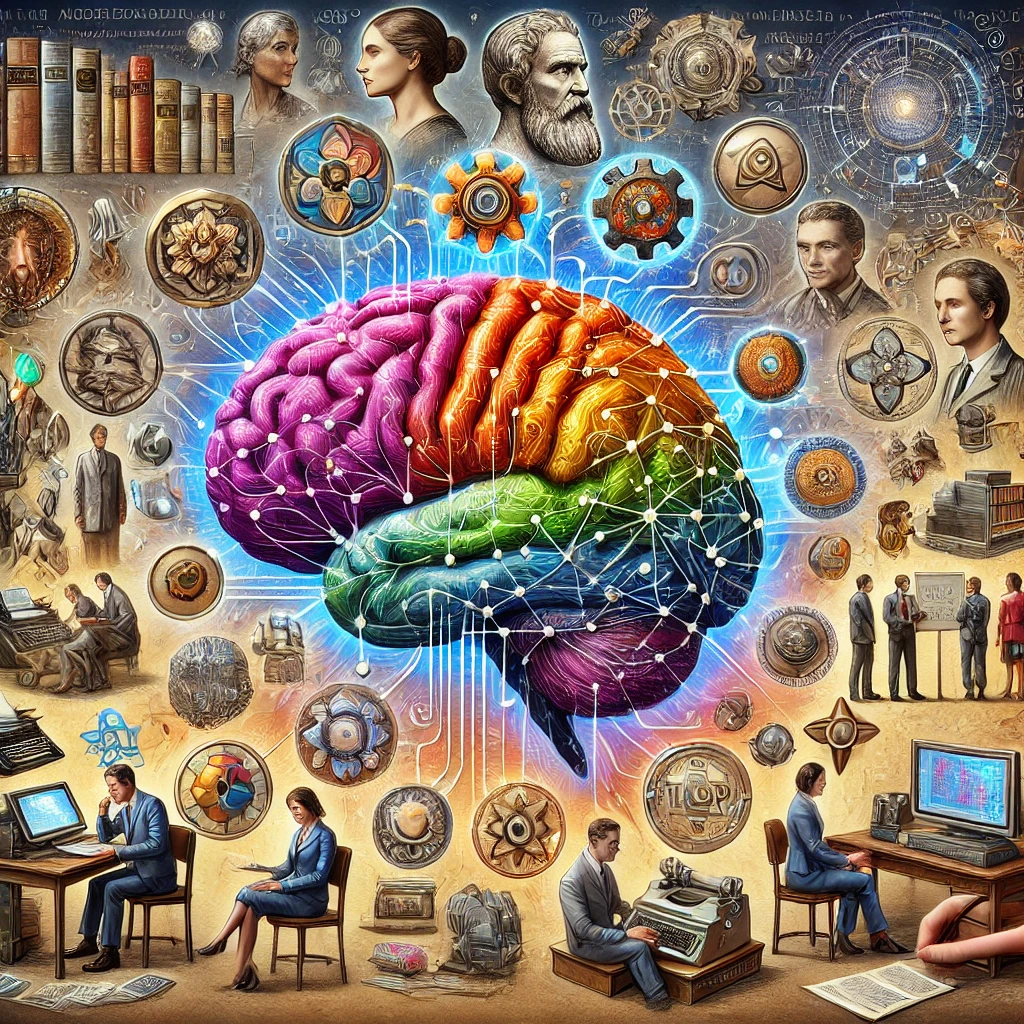You are capable of so much more, but maybe you’re just not sure how to unlock that potential. You may have tried to set goals, but life keeps getting in the way. Or perhaps you feel stuck, yearning for change but not knowing where to start. The good news is, you don’t have to figure it out alone. A Coach can be the catalyst that transforms your life. In this article, discover three powerful reasons why coaching might be exactly what you need to break through barriers, stay motivated, and create the life you truly deserve. 1. Gain clarity and direction One of the most powerful benefits of working with a coach is the clarity it provides. Many people feel unsure about what they want from life or how to achieve their dreams. A coach helps you identify your goals, define your purpose, and set a clear direction. Instead of wandering through life without a plan, you’ll gain focus and a vision for your future. For example, I once worked with a client who felt overwhelmed by her career. She had been in the same role for years but dreamed of making a shift. Through coaching, we broke down her goals, identified her passions, and created an actionable plan for change. Today, she’s pursuing a fulfilling career in a new field that aligns with her true passions. Clarity is powerful because it gives you a sense of purpose. With a clear direction, you can make decisions more confidently, set priorities, and avoid distractions. Coaching isn’t about handing you a roadmap; it’s about helping you find the roadmap within yourself. Key benefits of clarity and direction in Coaching: 2. Accountability and Motivation Setting goals is easy; sticking to them is the hard part. That’s where a coach becomes invaluable. Coaches provide a structure of accountability, ensuring you follow through on the plans you create. With regular check-ins, you’ll stay on track and motivated, knowing someone is there to support you. One client I worked with had a long-standing dream to start her own business, but every time she tried, she felt paralyzed by self-doubt and procrastination. Through coaching, we broke her goal into smaller steps and set weekly objectives. Knowing she had someone to check in with gave her the push she needed to take consistent action. Within six months, her business was up and running. Accountability helps you avoid the common trap of giving up when things get hard. A coach isn’t there to judge you but to remind you of why you started and what you’re capable of. They help you see setbacks as learning opportunities rather than failures. Key benefits of accountability in Coaching: 3. Break through limiting beliefs We all have limiting beliefs—thoughts and assumptions that hold us back. These beliefs often stem from past experiences or fear of failure, and they can create a mental barrier between where you are and where you want to be. A coach helps you identify these beliefs, challenge them, and replace them with empowering thoughts. One of my clients was a highly skilled professional but struggled with confidence. She often felt “not good enough” for leadership roles, even though she had the experience and skills. Through coaching, we uncovered the root of her self-doubt and worked on reframing her thoughts. By recognizing her strengths and achievements, she gradually overcame her fears and accepted a leadership position. Limiting beliefs are like invisible walls that block your path. By breaking through these walls, you open up possibilities you may not have thought possible. A coach can be your ally in dismantling these beliefs, allowing you to approach challenges with confidence and a fresh mindset. Key Benefits of Breaking Through Limiting Beliefs: How Coaching changes your life Coaching isn’t just about helping you achieve specific goals; it’s about equipping you with tools and skills for life. It teaches you how to set boundaries, manage stress, and make choices that align with your values. You don’t just change during the coaching process; you evolve as a person. For example, many of my clients find that coaching has a ripple effect on other areas of their lives. They become better communicators, more empathetic leaders, and more effective in managing personal relationships. As you work through challenges and reach goals, you develop a mindset of continuous improvement and self-compassion. Choosing the right Coach for you Not all coaches are the same, and finding the right coach is essential. Look for someone who understands your needs and has experience in the areas you want to improve. A great coach listens without judgment, challenges you when necessary, and is committed to helping you grow. Here are a few questions to consider when selecting a coach: The right coach will make you feel empowered and inspired. They will help you see the greatness within you, guiding you toward your best self. Conclusion Investing in a coach can be one of the most transformative steps you take in life. From gaining clarity and accountability to breaking free from self-doubt, coaching opens doors to growth, fulfillment, and success. Imagine having a trusted partner who is dedicated to helping you become the person you want to be. Whether you’re looking to make a career change, overcome personal challenges, or simply want more direction, a coach can help you navigate the journey. I am Maria Urbanczyk, a certified Life & Business Coach here to help you. If you’re ready to unlock your potential, take that first step, and see how coaching can change your life. contact me today and let’s start your journey to a brighter future!
10 Types of Coaching styles and strategies: definitions and benefits
Coaching is a powerful tool for personal, professional, and organizational growth. A coach’s job is to guide, support, and challenge people to reach their full potential. Coaches help individuals achieve goals and grow in different areas of life or work. There are different coaching styles that fit different client needs and situations. Here are ten common coaching styles, with their meanings and benefits: 1. Transformational coaching Definition:Transformational coaching helps people make deep personal changes. It focuses on beliefs, values, and life purpose. The goal is to change how clients think and help them see their lives from a new perspective. Benefits: Best for:People who want deep change in their personal or professional lives. It works well for those at a turning point in life. 2. Executive coaching Definition:Executive coaching helps high-level professionals improve leadership skills, decision-making, and impact within their organization. It focuses on performance and leadership development. Benefits: Best for:CEOs, executives, and business leaders looking to improve their leadership style. 3. NLP (Neuro-Linguistic Programming) coaching Definition:NLP coaching uses techniques from neuro-linguistic programming to change how people think, behave, and respond emotionally. The coach helps clients reframe limiting beliefs to create positive changes. Benefits: Best for:People wanting to change negative habits, develop new thoughts, or improve emotional responses to challenges. 4. Career coaching Definition:Career coaching helps people navigate their career path. It’s useful for those seeking a job change, career advancement, or a shift to a new field. Coaches help set career goals and build a success plan. Benefits: Best for:Job seekers or professionals looking to advance or change their careers. 5. Performance coaching Definition:Performance coaching helps people improve their skills and results. The goal is to boost performance by setting clear objectives and working on areas that need improvement. Benefits: Best For:Professionals, athletes, or anyone wanting to enhance their performance in high-pressure environments. 6. Life coaching Definition:Life coaching takes a holistic approach to personal growth. It helps individuals improve various areas of life, including relationships, health, career, and overall well-being. Benefits: Best For:Individuals seeking overall life improvement, balance, or clarity in personal goals. 7. Health and Wellness Coaching Definition:Health and wellness coaching focuses on improving physical and mental well-being. Coaches help clients set health-related goals like weight loss, fitness, nutrition, or stress management. Benefits: Best For:Individuals looking to improve their health, adopt better habits, or manage stress. 8. Business coaching Definition:Business coaching helps entrepreneurs and professionals grow their business or improve organizational performance. Coaches focus on strategy, goal setting, and problem-solving. Benefits: Best For:Entrepreneurs, small business owners, or corporate professionals looking to grow their businesses. 9. Leadership coaching Definition:Leadership coaching develops leadership qualities like communication, emotional intelligence, and team management. It’s designed to help leaders guide their teams more effectively. Benefits: Best for:Aspiring or current leaders wanting to improve their leadership skills. 10. Organizational development coaching Definition:Organizational development coaching focuses on improving an organization’s culture and effectiveness. Coaches work with teams to enhance collaboration and create a positive work environment. Benefits: Best for:Organizations looking to improve workplace culture, team collaboration, or performance. Coaching strategies to enhance results To make coaching more effective, coaches often use specific strategies to achieve better outcomes. Here are some common strategies: 1. Goal-setting and action planning Coaches help clients set clear, measurable goals. They also create a plan to achieve them step by step. Benefits: 2. Active listening and empathy Active listening means the coach pays close attention to the client’s words and feelings. This creates a strong sense of support and trust. Benefits: 3. Powerful questioning Coaches ask thoughtful, open-ended questions that make clients think more deeply. These questions help clients challenge assumptions and gain new perspectives. Benefits: 4. Accountability and support Coaches hold clients accountable for their actions. Regular check-ins and feedback help clients stay on track. Benefits: 5. Visualization and mindset shifts Visualization helps clients imagine success. Shifting their mindset helps them overcome limiting beliefs. Benefits: How to identify which coaching style fits you best Finding the right coaching style depends on understanding your personal or professional goals. Start by evaluating the areas in your life where you want growth or change. For example, if you’re looking for deep personal transformation, transformational coaching might be the best fit. On the other hand, if you need help with leadership skills, executive coaching could be ideal. It’s important to assess what you need most – whether it’s personal development, career guidance, or improving performance in a specific area. Once you know your needs, match them with the coaching style that best supports those goals. How to choose the right coach for your personal or professional growth Choosing the right coach is an important step toward achieving your goals. First, consider the coach’s expertise. A coach who specializes in your area of need, whether it’s leadership, health, or career, will offer more tailored guidance. Next, evaluate the coach’s communication style. Do they use empathy and active listening? Are they goal-oriented and results-focused? Also, consider their credentials and experience. Checking reviews, client testimonials, or certifications can help you assess their credibility. Finally, ensure you feel comfortable and trust the coach – this relationship is key to success. Conclusion Coaching offers many styles and strategies to fit different needs. Whether you want to change your life, grow in your career, or become a better leader, there’s a coaching style for you. By understanding the different types of coaching, you can choose the one that best suits your goals. This way, you can make real progress in both your personal and professional journey. Ready to Transform Your Life? As a Certified Business & Lifestyle Coach, I am here to help you reach your goals. Whether you are looking to enhance your personal life or excel in your career, together, we can achieve your aspirations. Book a consultation and let’s start this journey of growth and success together!
Understanding NLP: what it is, who practices it, and its history
Neuro-Linguistic Programming (NLP) is a field that has gained attention since it was created in the 1970s. It was first developed as a way to understand and copy how people communicate and behave successfully. Today, NLP is used in therapy, business, education, and personal growth. In this article, we will explore what NLP is, who practices it, its history, and how it’s used in different areas. We will also look at some of the controversies surrounding NLP and how it’s evolving. What is NLP? Defining NLP NLP stands for Neuro-Linguistic Programming. Let’s break it down: In simple terms, NLP is a method that helps us understand how our mind, language, and actions are connected. By changing these connections, NLP aims to help people achieve their goals, overcome challenges, and improve their lives. Key concepts in NLP NLP is based on several key ideas and techniques. Practitioners use these to help people make positive changes. Here are some of the main concepts: The role of the NLP practitioner An NLP practitioner is trained in using NLP techniques. They apply these methods to help people in therapy, coaching, business, and education. The main goal of an NLP practitioner is to help people reach their goals by changing their thoughts, behaviors, and communication patterns. Applications of NLP NLP practitioners work in many fields. They use NLP techniques for different purposes: A brief history of NLP Origins and development NLP began in the early 1970s. Richard Bandler, a mathematician and computer scientist, teamed up with John Grinder, a linguist. They wanted to understand how successful therapists helped their clients. They studied three therapists in particular: Bandler and Grinder watched these therapists closely. They studied their language, behavior, and techniques. From this, they created the principles and techniques of NLP. Key milestones in the evolution of NLP Since NLP started, it has grown and changed in several important ways: Applications of NLP in various areas NLP in therapy One of the earliest uses of NLP was in therapy. NLP techniques help people with many psychological problems, including: NLP in coaching Coaching is another area where NLP has had a big impact. NLP techniques are used in various forms of coaching: NLP in business In business, NLP is applied in many areas: NLP in education Teachers and trainers use NLP to: The ongoing evolution of NLP Integration with other techniques Recently, NLP has been combined with other approaches, such as cognitive-behavioral therapy (CBT), mindfulness, and positive psychology. This combination allows practitioners to use the best parts of different methods, creating more effective ways to help people. Emerging trends Several new trends are shaping the future of NLP: Continued research and development As NLP continues to grow, ongoing research is important to confirm its techniques and expand its uses. Collaboration between NLP practitioners, researchers, and educators is needed to build a stronger scientific foundation for NLP and ensure its continued relevance. Conclusion Neuro-Linguistic Programming (NLP) is a powerful and versatile field that has made a big impact in many areas, from therapy and coaching to business and education. NLP’s core ideas and techniques offer valuable tools for understanding and influencing human behavior. As the field evolves, it is likely to be further combined with other methods and used in new, innovative ways. NLP practitioners play a key role in applying these techniques to help people achieve their goals, whether in personal growth, communication, or professional success. By following ethical guidelines and continuing to explore NLP’s potential, practitioners can contribute to the ongoing development of this fascinating field. Get ready to succeed with Maria I am Maria Urbańczyk, and I am here to support you on your journey. As a Certified Business & Lifestyle Coach, I understand the challenges you face. If you are aiming to reach new heights in your career or seeking balance in your life, I am here to guide you. Just book an appointment and start your growth journey!
What is Coaching and what isn’t – types, goals, and more
Some History The demand for coaching services has surged in professional fields. From leaders seeking to enhance their performance to teams aiming for better collaboration, coaching is a buzzword that has captured the attention of many. However, despite its growing popularity, there remains a significant amount of confusion about what coaching truly entails. Is coaching the same as mentoring, consulting, or therapy? What exactly does a coach do, and what roles do they avoid? In this article, we will aim to clarify the concept of coaching, clearly delineating what coaching is and what it isn’t, while also exploring the different types of coaching available and more. What is Coaching? At its core, coaching is a collaborative partnership between a coach and a client (which could be an individual, team, or organization). The primary goal of this relationship is to unlock the client’s potential and maximize their personal and professional performance. Unlike other service professions, coaching is not about providing answers or solutions. Instead, it involves guiding clients to discover their own solutions, fostering self-awareness, and promoting sustainable change. Key characteristics of Coaching 1. Client-centered: Coaching is centered around the client’s goals, aspirations, and challenges. The coach does not impose their own agenda but instead facilitates the client’s journey toward their desired outcomes. 2. Non-directive: Unlike consulting or mentoring, coaching does not involve giving advice or instructions. The coach asks powerful questions, listens actively, and offers observations to help the client gain insights. 3. Future-focused: Coaching emphasizes forward movement and future possibilities rather than dwelling on past issues. The focus is on actionable steps that lead to growth and achievement. 4. Accountability: A significant aspect of coaching is holding the client accountable for their progress. The coach supports the client in setting goals and ensures they follow through on their commitments. 5. Confidentiality: Trust is fundamental in a coaching relationship. Coaches maintain strict confidentiality that creates a safe space for clients to explore their thoughts and feelings without fear of judgment. 7 Different types of Coaching Coaching comes in various forms, each customized to specific needs and contexts. Here are some of the most common types of coaching: 1. Life coaching: Life coaching is designed to help individuals achieve personal goals, such as improving relationships, finding work-life balance, or pursuing personal development. Life coaches assist clients in identifying their passions, overcoming obstacles, and creating a fulfilling life. 2. Executive coaching: This type of coaching is geared toward leaders and executives who want to enhance their leadership skills, improve decision-making, and drive organizational success. Executive coaches work closely with leaders to develop strategies for achieving their professional goals while maintaining personal well-being. 3. Leadership coaching: Leadership coaching focuses on helping individuals develop the skills and mindset required to lead effectively. Besides, this coaching is often employed in corporate settings to cultivate leaders who can inspire and guide their teams toward success. 4. Team coaching: Team coaching involves working with groups to improve collaboration, communication, and performance. And, the coach helps teams identify their collective goals, resolve conflicts, and build a cohesive, high-performing unit. 5. Organizational coaching: Also known as enterprise coaching, this approach is used within organizations to facilitate change, improve culture, and align teams with the company’s strategic goals. Organizational coaches work with multiple levels of the organization. From leadership to front-line employees, it creates systemic transformation. 6. Business coaching: Business coaching is aimed at entrepreneurs and business owners who want to grow their businesses, improve operational efficiency, or achieve financial success. Coaches in this field help clients set business goals, create strategic plans, and navigate challenges. 7. Performance Coaching: This type of coaching is focused on improving specific skills or performance in a particular area, such as public speaking, sales, or sports. Performance coaches help clients refine their abilities, set measurable goals, and achieve peak performance. The coaching process: what to expect? Initial consultationThe process begins with a consultation to discuss your goals and see if the coach is a good fit. This meeting sets the foundation for your coaching journey. Goal settingAfter the consultation, you’ll work with the coach to set clear, achievable goals. These goals will guide your sessions and keep you focused. Coaching sessionsRegular sessions (usually 30 minutes to an hour) are where the real work happens. You’ll explore possibilities, identify obstacles, and develop strategies to move forward. Action planningAt the end of each session, you’ll agree on specific actions to take before the next meeting. These steps are designed to bring you closer to your goals. Accountability and supportThe coach will help you stay on track by checking in on your progress and offering encouragement. This support keeps you motivated and focused. Review and reflectionPeriodically, you’ll review your progress with the coach. This reflection helps you understand what’s working, make adjustments, and continue growing. Conclusion and evaluationThe process ends when you’ve achieved your goals or feel ready to continue on your own. The final session includes a review of your journey, lessons learned, and plans for future growth. What Coaching isn’t? To fully understand what coaching is, it is equally important to clarify what coaching isn’t. Many people mistakenly assume that coaching involves elements of consulting, mentoring, therapy, or even management. However, these are distinct professions with different objectives and methodologies. Coaching vs. Consulting Consulting is a profession where experts provide advice and solutions based on their knowledge and experience. Consultants diagnose problems, design strategies, and often implement solutions on behalf of the client. In contrast, coaching operates on the belief that the client is the expert in their own life or work context. The coach’s role is to support the client in discovering their own solutions rather than prescribing them. Coaching vs. Mentoring Mentoring involves a relationship where a more experienced person (the mentor) offers guidance, advice, and wisdom to a less experienced person (the mentee). While mentoring can include elements of coaching, it also involves sharing the mentor’s own experiences and insights to help the mentee grow. Coaching, on the other hand, is




